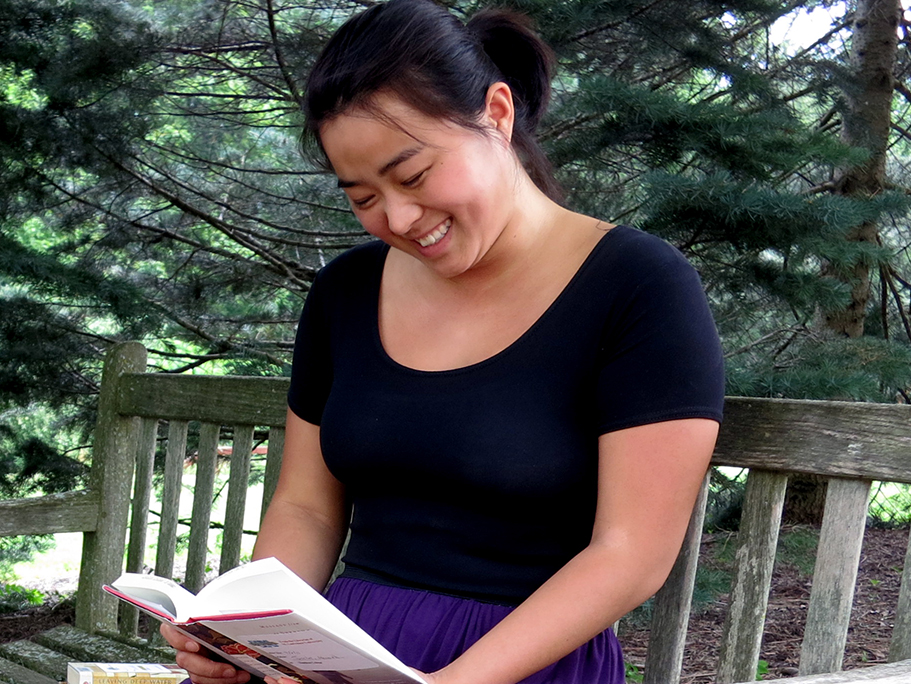
Hannah Tessler ’14 is connecting with children adopted from China to learn about their unique experiences being “raised American,” in her project funded by the Arthur Levitt Public Affairs Center. With Associate Professor of Sociology Steve Ellingson, she will listen to others’ stories and “search for relationships between a child’s environment and their outlook on a variety of topics and issues.”
Some adoptees grow up around more adopted children than others, and some also live in more racially diverse neighborhoods. Tessler is studying the adopted Chinese population to see how their American experiences have shaped their personal images of themselves and attitudes toward adoption issues such as abandonment and racial stereotyping.
China opened its borders to adoption in 1992, and not much research has been done on the children who left the country roughly 20 years ago. Similar studies have focused on adoptive parents, but Tessler is looking forward to “receiving first-hand accounts from the adoptees themselves.”
Growing up American in a white family but being identified as Asian is very difficult for many adoptees to whom Tessler has spoken. The children experience conflict between how they are viewed in society and who they really are. Some Asian adoptees feel as though they were treated differently than their white peers even though they had very similar backgrounds.
To address these feelings, the Chinese government enables children to return to their birth locations and experience the local culture so they can incorporate some elements into their American lives. Tessler said the government covers the cost of the trip, which includes hotel rooms, escorted tours through historical Chinese sites, lunch with a Chinese family in their home and visits to children’s schools.
Everyday life presents adopted children with uncomfortable situations. Going to a doctor’s office and not knowing their parent’s medical history or risk of heart disease can be difficult. Also, consider genetics courses, where students fill out Punnett squares to find the probability of inheriting a trait, such as hair color, from their parents. During this exercise, adopted children will be reminded that they do not know what their biological parents look like. Some children who were abandoned also do not know their real time of birth, which can leave adoptees with an uneasy feeling on their designated birthday, according to Tessler.
As an adoptee herself, Tessler personally relates to many participants. She appreciates this opportunity to “become more attached to the adoption community while uncovering issues that even I was unfamiliar with,” and talking to adoptees about their opinions on race, gender and their personal identities. Tessler was surprised when “over 50% of my survey respondents expressed an interest in finding their birth parents.” She also visited China a handful of times during her childhood and felt connected with the country’s culture, so she expected more of her participants to share a similar sentiment than she found.
“One interesting thing I’ve noticed is that adoption has shaped a lot of people’s academic interests,” said Tessler. She has found that adoptees within her small sample tend to concentrate more in the social sciences, such as American and women’s studies, sociology and anthropology. She believes these concentrations “allow you to critically analyze society and look at it in a different way,” which is empowering for many adoptees.
Adoption agencies cannot release sensitive personal information about the children whom they have helped, so Tessler utilized alternative sources to find adoptees. One documentary, “Somewhere Between,” documented the lives of four girls adopted from China who now live in America. Tessler joined their Facebook page and found active viewers who were willing to participate in her study.
Tessler also performed snowball sampling, where a researcher recruits friends and acquaintances to help find eligible participants. Her methodology involved a quantitative online survey that received 87 responses and 20 individual follow-up interviews. She said, “I feel like there’s a very broad range of experiences in my chosen population.”
“Research involving adopted children is often overlooked in studies involving Asian Americans,” said Tessler, and she is proud to bring awareness to their issues. She hopes societies will “eventually place less importance on genetic relations,” and support all family structures involving adopted children.
Tessler is a graduate of Amherst Regional High School (Mass.).
Posted August 20, 2013
